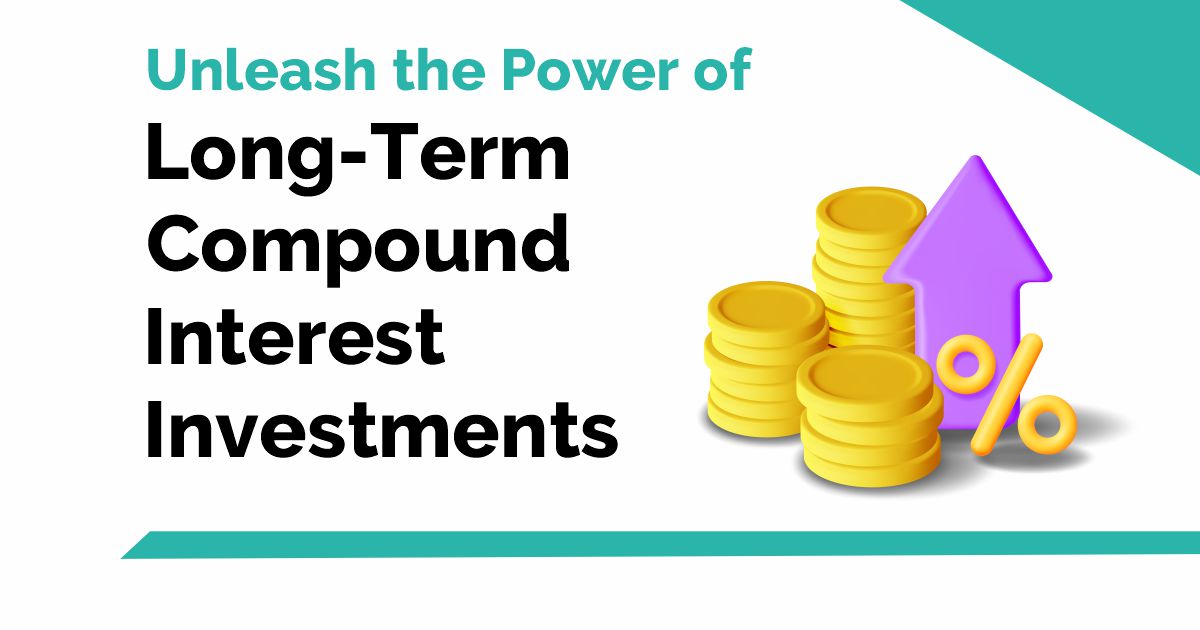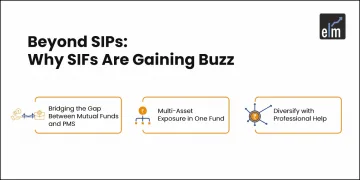Compound interest investments-The power of compounding is a term used to describe a phenomenon in the finance industry. It’s an idea that could change the course of your financial life.
It speaks to an asset’s ability to produce profits that can be reinvested to produce even more profits. This compounding impact has the potential to create significant wealth over time.
We will examine the power of compounding in this post and learn how to use it to achieve financial success.
Table of Contents
The Magic of Compound Interest
The process of making money on an initial investment, as well as the cumulative gains over time, is known as compounding.
Exponential growth occurs when earnings are reinvested because they start to generate their own earnings.
Because of its ability to greatly increase the growth of assets, the compounding effect is frequently referred to as the eighth wonder of the world.
What is the power of compounding in the Stock Market?
Let me tell you the story of one of my uncles. He invested just Rs 1000 in one of a company in the year 1980 and subscribed to 10 shares with a face value of Rs 100.
By the end of the year 2023, the initial 10 stocks subscribed in 1980 have become 9,60,000 shares.
So can you guess, which is that company? The name of the company is WIPRO and the current valuation of my uncle’s portfolio is more than Rs 100 crores.
This is the power of compounding. In short, the bigger the time period, the higher the power of compounding.
But we should not forget that equity as an investment class is very risky and there should be proper research before investing in equities directly.
Let’s have a look at the investments made in various investment products like a savings bank account which gives a return of about 4-6%, bank fixed deposit @ 8%, and equities which provide a CAGR of around 10-15% on an average and even more, in the long run, depending upon the risk.
The chart shows that Wipro generated around 130% in the last 10 years-
Benefits of Long-Term Investing
Below are the benefits of long-term investing-
1. Capitalizing on the power of compounding
Your investment gains can eventually yield more profits thanks to compound interest. The compounding impact increases with the length of time your money is invested, resulting in exponential growth.
2. Weathering market volatility and downturns
Investors with a longer time horizon are more resilient to transient market swings. Long-term volatility tends to average out, mitigating the effect of market ups and downs on total returns.
3. Maximizing returns through a patient and disciplined approach
The power of time in the market can be advantageous to long-term investors. Investments can recover from market downturns and profit from the market’s general upward trend when investors exercise patience.
Types of Long-Term Compound Interest Investments
You can invest in the following Long-Term Compound Interest Investments–
1. Stock Market Investments
Equity investments are gaining ground as the awareness about the instrument is rising.
With the growing financial literacy in India, more investors are investing in the stocks due to their potential for higher returns along with liquidity and simpler implementation.
Stocks are the riskiest instrument available among the others, as it carries a potential threat of capital loss. But if done with proper research and discipline, it can give the best returns out of the three.
The Return on Investments in Equity is generally in the form of dividends and capital appreciation. Thus, as we all know with higher risks comes a higher return. One should never consider equity to generate guaranteed returns.
Equity is the most liquid form of investment as it can be liquidated whenever we want (during market hours) and withdraw the funds.
2. Bond Investments
Debt instruments, known as bonds, are issued by corporations, governments, municipalities, and other organizations to raise money.
When investors purchase bonds, they are effectively lending money to the issuer in return for regular interest payments and the principal amount being returned when the bond matures.
Bond investing over the long term is a desirable choice for those seeking stability, income, and capital preservation because it provides a number of advantages.
Throughout the bond’s existence, periodic interest payments from bonds give investors a steady and predictable source of income.
Retirees and income-focused investors who are looking for consistent cash flow may find this to be very advantageous.
3. Retirement Accounts
Long-term retirement account investments include a number of advantages that can greatly improve one’s financial security in retirement. Here are a few main benefits:
Retirement accounts have tax benefits that can accelerate investment growth.
Traditional retirement plan contributions are frequently tax deductible, which lowers taxable income in the year of the contribution.
Since contributions to retirement accounts are made using after-tax money, withdrawals from them during retirement are tax-free. The long-term use of compounding is made possible by retirement funds.
Contributions may yield additional earnings in addition to any investment gains, and these earnings may yield returns in later years.
Practical Tips for Unleashing Compound Interest
Investing requires discipline and strategy to fully realize the potential of compound interest. The following useful advice may help you maximize compound interest:
1. Start Early and Stay Consistent
A key component of compound interest is time. Your money has more time to expand enormously if you start investing early.
In the long run, even modest early donations can make a big difference. Make consistent contributions to your investments. Regular contributions—monthly or yearly—amplify the compounding effect.
To guarantee a disciplined approach to investing and saving, set up automatic transfers.
2. Reinvesting Dividends and Interest
Reinvest dividends and interest payments back into your investment portfolio as opposed to cashing them out.
Reinvesting increases the value of both your initial investment and the profits you make from it.
3. Adjusting The Investment Strategy as Goals Evolve
Think about making investments that could outperform inflation. Compounding increases the value of your investments, but it’s crucial to make sure that your returns’ true value continues to outpace inflation.
Online Calculators For Projecting Compound Interest Growth
You can project compound interest growth and determine the future value of your investments with online calculators as shown below-
CAGR calculates the yearly return on your investment over a given time frame. This enables you to ascertain whether, over that time, your investment returns have grown or diminished. CAGR assists entrepreneurs in determining whether their company is expanding and reinvesting its revenues. You may calculate your actual yearly investment returns with a CAGR calculator.
You can benefit from using a CAGR calculator in a number of ways, such as figuring out whether your company is expanding over time and if the money is being invested wisely. Also assessing investment choices in light of their corresponding CAGR indices. For instance, if Stock B is outperforming Stock A in terms of performance, you might want to invest in Stock B instead.
Bottomline
Recall that compound interest’s real strength is felt over an extended period of time. Through the application of these useful suggestions and the maintenance of a methodical and patient strategy, you may fully realize the advantages of compound interest and gradually accumulate wealth.
Frequently Asked Questions (FAQs)
How does compounding build wealth?
Because compound interest is based on both your initial investment and the interest that has accrued over time, it allows your money to increase more quickly. When initial investments and the revenue from those investments compound together, it can have a snowball effect.
What is so powerful about compounding?
This implies that you will get interest on the principal amount in your account in addition to the interest you have already accrued. Since compound interest has the potential to increase your account’s return over time, it is essential to understanding investing principles.







